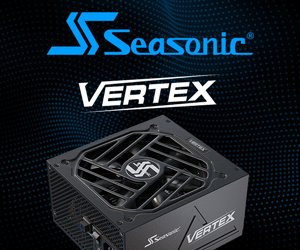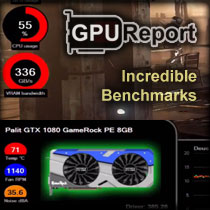Ryzen is dead, long live Ryzen AI
Last summer, Intel announced a transition to a new era of processors, symbolized by the rebranding to Core Ultra for Meteor Lake and the upcoming Lunar Lake and Arrow Lake processors. AMD has often copied Intel’s branding methods in the past, and it seens it’s going to do it again. The upcoming Zen 5 processors will get their own version of the Ultra gimmick, and ironically, Intel might actually be jealous of the idea, this time.
A bit like in a previous update, it’s a story of one report appearing saying A, immediately contradicted by further report saying B. In fact, there was first an official document from Lenovo showing what AMD could name its Zen 5 architecture processors, which referred to the use of future Ryzen 8050 processors in the company’s laptops. This would fit with the current branding, where 8000 means product year 2024 and 50 at the end means using the Zen 5 architecture.
However, it seems that while Lenovo may not be lying, the marketing material probably only assumed that AMD would use this marking, based on the past. We didn’t think so, for example, and assumed that the company would at least deviate by calling the processors Ryzen 9050 even if they came out this year, to distinguish them properly.
Ryzen AI 100 generation
Shortly thereafter, an failure to keep things confidential also happened to Asus, which leaked several laptops that will be based on the mobile Zen 5 processors, that is the Strix Point APU. Of particular interest is the Vivobook S16, which will feature a 12-core Strix Point processor, and Asus has already listed some specs on the company’s website, including the CPU designation, which the company has apparently learned under NDA (the specs have since been quickly deleted). That name is supposed to be Ryzen AI 9 HX 170, it’s possible this will be the most powerful (or maybe the second most powerful) model in the series.
Apparently AMD will not use either the 8050 or 9050 designation, but like Intel – or perhaps mainly in response to their rebrading – will change the naming of its processors to convey that the processors in question represent some sort of new technology and capability step-up over previous ones. Also contributing could be that they are running out of numbers in today’s labeling, and would probably have to start using five-digit designations after the 9000 generation.
While Intel has introduced Core Ultra instead of the earlier Core “i”, AMD will apparently counter with “Ryzen AI” branding. It’s not an entirely mindless exercies, as the Ryzen AI branding has already been introduced by the company on the mobile Ryzen 7000 and 8000 as a designation for their NPUs. Actually, this designation is already appearing in the logo on the stickers that current laptops with these processors carry.

With this name change, the numbering is also getting reset to three digits (probably to make it clear that this is not an old Ryzen 1000 processor from 2017), so we have the Ryzen AI 100 generation. Finally, the HX designation is also added before the 100, which will presumably indicate what performance and power class the processor belongs to. Here, AMD has gotten somewhat creative and moved the letters before the number, whereas before it was the other way around (and Intel keeps it that way). This doesn’t look entirely fortunate, as the labelling string of number and letter groups has become more disjointed.
However, Ryzen AI as an alternative or counterbalance to Intel’s Core Ultra seems like a pretty good move. AI (artificial intelligence) is the biggest buzzword (fad?) in today’s computing industry and the whole market is trying to capitalize on it, so sticking it in the name makes sense. Especially since AI acceleration in NPUs is one of the main new capabilities on these processors that the renaming is meant to signal.
You can actually imagine that in Intel’s department which is in charge of coming up with various brands and promotional strategies, someone now regrets not coming up with exactly this idea themselves (or if they did, not using it) and naming the Meteor Lake processors Core AI (and so on). You could even organically combine it with the original “i” in the model designations, so you’d have, say, Core AI9 15900K (or ai9 15900K). It would probably feel much more unobtrusive and natural branding change, which wouldn’t be giving as much of the impression that the whole rebranding move is mainly being done because Intel is trying to grab attention as much as it can purely because its products are failing to be attractive enough on the technological level.
Ryzen AI 9 HX 170
The specifications listed by Asus for this processor are as follows: It is confirmed that the Strix Point has 12 cores with 24 threads (SMT supported), but no breakdown is given between the big Zen 5 and the compact lower clocked Zen 5c cores. The processor has 24 MB of L3 cache, a somewhat irregular capacity, of which we do not yet know if it is divided into two segments (16 MB and 8 MB possibly?).
Asus also states that the total performance for AI tasks is 77 TOPS, but only some 45 TOPS of that is probably NPU performance. It is also said that the maximum boost is 5.1 GHz, but this might not be the final spec according to some voices (hard to say if this is true, or just wishful thinking).

Is there going to be Ryzen AI for desktop?
All of this applies to Strix Point laptop processors for now. Eventually, the Ryzen AI designation could probably be extended to their desktop versions for the AM5 socket, but it would be logical if only the SKUs that have an NPU enabled carry the Ryzen AI brand.
But the first desktop CPUs with Zen 5 architecture to hit the market will be something different – the so-called Granite Ridge family, made up of CPU chiplets with Zen 5 cores (these dies are likely shared with server CPUs) and an IO chiplet taken straight from the current Ryzen 7000X. These Granite Ridge CPUs don’t have NPUs or any new connectivity, their very basic iGPUs are also unchanged. We still think the Ryzen 9050 branding will be used for these. Or more likely just plain Ryzen 9000 numbering, so the models will then be called Ryzen 5 9600X, Ryzen 7 9700X, Ryzen 9 9900X and 9950X (or X3D). Just like the scheme used today, basically.
Sources: VideoCardz (1, 2), TechnicallyLogic, Harukaze5719
English translation and edit by Jozef Dudáš
⠀








